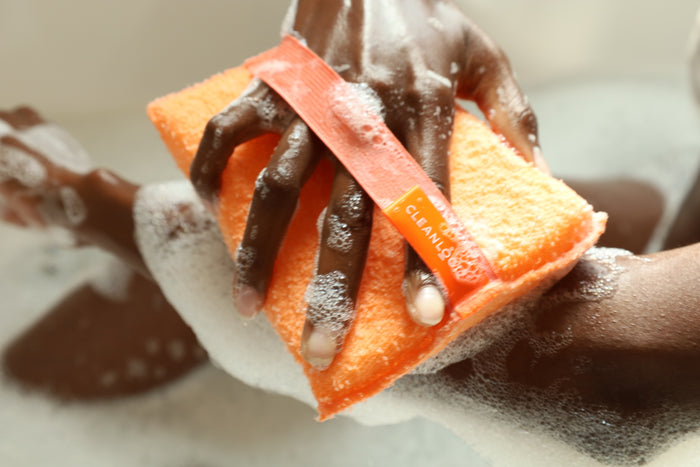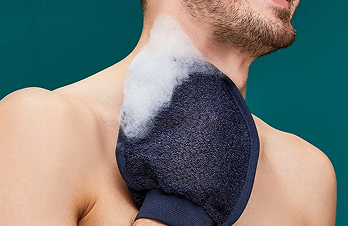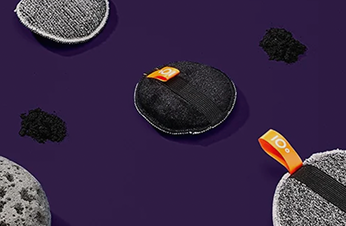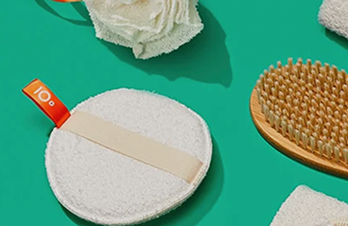Do you sometimes wonder why some skincare products make others look radiant but have little to no effect on you? The chances are that item isn't suitable for your skin type. Skin type fundamentally means the condition of your skin, and there are five primary types: dry, oily, normal, and sensitive.
Understanding where you stand in the skin type spectrum is crucial to eliminating spot and acne and achieving that clear, smooth skin that you desire. It's worth noting that each skin type possesses different characteristics, and discerning your condition will require you to pay special attention to the signs.
In this article, you'll learn about the five skin types, their determinants, and how to care for them. Let's begin.
What Determines Skin Type?
The primary determinant of one's skin type is genetics, as this factor plays a massive role in the composition and behavior of your skin. The body houses roughly 20,000 to 50,000 genes that determine everything about us, including whether we'll possess a dry, oily, normal, combination, or sensitive skin.
These genes regulate the skin's cell production, which involves shedding away the old ones when they die and producing fresher sets. Unfortunately, some genes fail to function correctly, leading to them signaling the body to perform a specific task too little or too much.
This misfiring can result in many problems such as acne, oily skin, dry and itchy skin, and slow tissue repair.
*Note: Environmental factors can influence your skin's condition as the excessive head can make it appear dry and flaky.
The Five Types of Skin
1. Normal Skin Type
People with normal skin don't worry about secreting too much oil or having skin feel dry and flaky as they balance both factors. Even when the skin becomes oily or dry, it's easy to rectify with a simple shower or anything of the sort.
Unlike oily skin, the pore size on normal skin is small and barely visible, making the release of moisture mild and appropriate. People with this skin type generally enjoy a rich skin tone with few lines, wrinkles, and blemishes, making them envy other skin types.
Despite these qualities, it's important to note that a normal skin type is not the same as having perfect skin because it is still susceptible to common skin issues like blemishes and acne. Also, skin type changes as one gets older or experienced bodily changes like menopause or pregnancy.
Therefore, avoid products that make the skin feel more oily than usual and items that cause excessive dryness. Even if a normal skin type doesn't require intense skincare, it still needs beauty products to keep it radiant and look its best.
2. Dry Skin
This type is self-explanatory as it involves the skin feeling dry and flaky with scaly patches on the surface. People with this skin have nearly invisible pores that make way for lubrication, leading to wrinkles and constant skin irritation.
Unfortunately, one's parents are to blame for dry skin as the genetic predispositions can influence the amount of sebum secreted out of the oil gland. One common misconception about dry skin is that it lacks adequate moisture; however, the water content of dry skin is similar to that of oily skin, and adding more water isn't a recommended treatment.
3. Oily Skin
Oily skin involves an over secretion of sebum from the oil glands, leading to a visible shine on the face and unpleasant acne breakouts. The cause of this condition is majorly due to the genetics of hormonal changes as time progresses.
People with genetic factors over-produce moisture from their skin's active glands regularly, and while this substance keeps the skin soft and moist, it'll collect dust and dry skin, leading to acne.
On the other hand, when the body experiences hormonal fluctuations, especially during pregnancy, it produces Androgens, which are hormones found in both women as men. This chemical triggers the release of sebum, but often, the production is excessive, thereby widening the skin pores and leaving them vulnerable to acne.
People with oily skins suffer the most from whiteheads, blackheads, acne breakouts, and pimples due to the expanded pores blocked by dirt and dead skin cells.
4. Combination Skin
Combination skins are as the name suggests, houses two skin types and produces their individual side effects. In this type, one side is riddled with oil and acne, and the other portion is dry, flaky, and itchy.
People with this skin type commonly assume they have oily skin due to the over secretion on one side, but unless the entire face is soaked in oil, it's most likely a combination skin type.
Identifying and treating combination skin is slightly tricky as the oily section covers most of the face, the forehead, nose, and chin. These areas have more sweat glands than the cheeks, leading them to be more oily, but what makes this type tricky is finding the precise skincare routine to rectify both the oily as dry sections.
5. Sensitive Skin
Sensitive skin is the most irregular of all skin types as it may exhibit characteristics of dry, oily, and combination skin, leading to constant irritation and redness. This skin type usually surfaces due to allergies or rosacea, making the surface incompatible with products containing harsh chemicals.
Sensitive skin is susceptible to inflammation and irritation, making it difficult to use any skin care product without a prescription from a dermatologist.
How to Care for Each Type of Skin
Normal Skin Type
This skin type requires very little maintenance; nevertheless, individuals should avoid using products that make the skin feel unnecessary oily, or dry to keep it balanced. Furthermore, it would be best to apply a skincare routine to ensure the skin remains fresh and radiant always.
Dry Skin
Caring for dry skin involves avoiding harsh cleansers that eliminate moisture from the skin, leaving it dry and flaky. Also, drink water regularly, avoid taking long, hot showers, and avoid dry environments.
Oily Skin
Exfoliation is one of the best methods to care for oily skin as the dead skin cells cling to the moisture and clog the open pores. Fortunately, exfoliants can remove these dead cells before they cause blemishes, leaving nothing but the oil on your face.
Combination Skin
Consider avoiding harsh chemicals in your skincare products and opt for ones made from natural ingredients. Also, exfoliate regularly, use two types of moisturizers for each skin surface, and avoid products with fragrance as they may irritate the surface.
Sensitive Skin
Sensitive skins are too volatile and unpredictable; therefore, they require professional attention from a dermatologist. Consider visiting a skincare expert to analyze your body and determine what products will work best with no adverse effects.
Determining Your Skin Type
With the extensive information above, determining your skin type should be easier as it contains a detailed description of different body surface conditions. Closely analyze your skin for a few days and in an ideal environment to see what characteristics it exhibits. However, if you still can't identify your skin type, consider visiting a skin expert and analyzing it.
Cleanlogic Bath and Body Exfoliating Body Gloves – Cleanlogic Body Care












0 comments